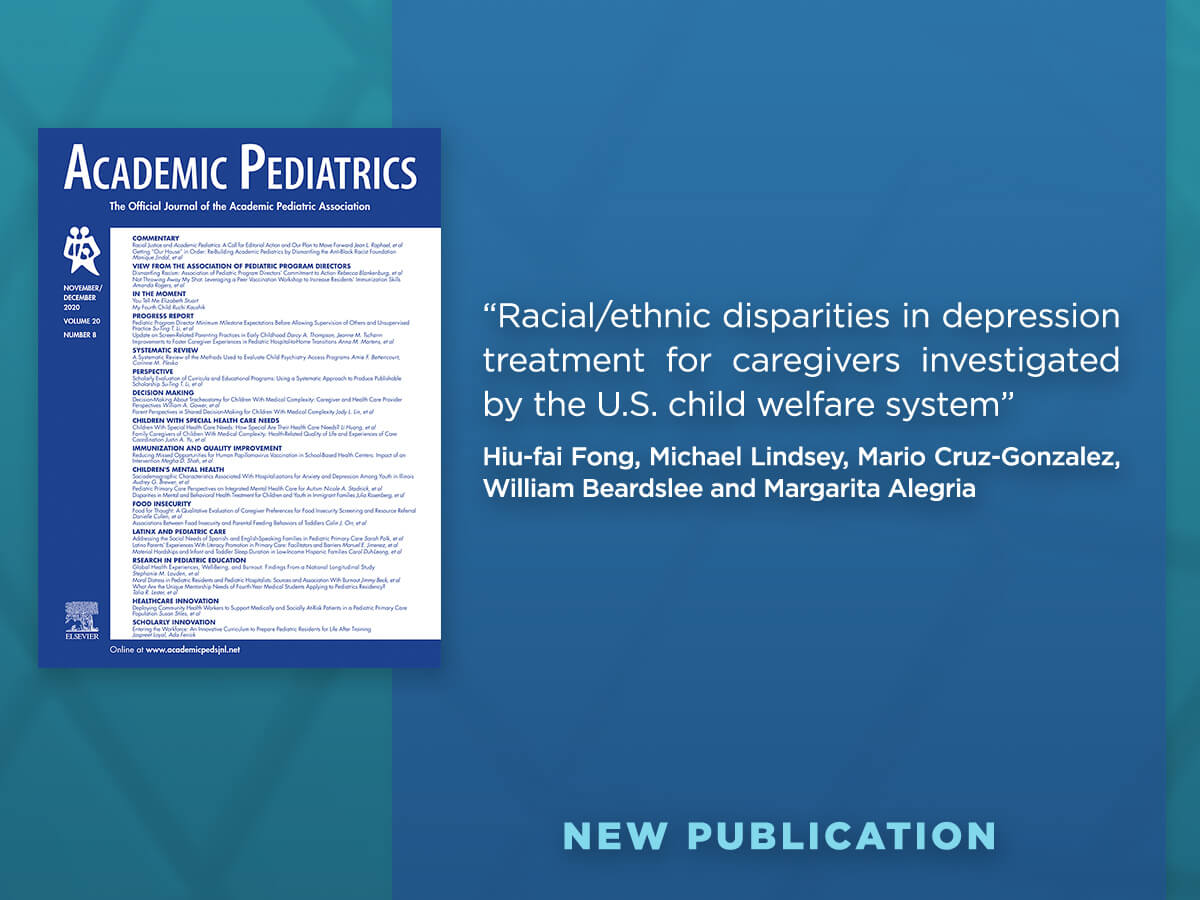Caregivers involved in the child welfare system often struggle with depression, yet those who are Black get the least amount of help, as revealed in a new study published online in Academic Pediatrics, of which McSilver Institute Executive Director Dr. Michael A. Lindsey is a co-author. The lead author of the study showing the racial gap in depression treatment is Dr. Hiu-fai Fong, a Staff Physician on the Child Protection Team in the Division of General Pediatrics at Boston Children’s Hospital and Pediatrics Instructor at Harvard Medical School.
The study found that only 42 percent of Black caregivers being investigated by the U.S. child welfare system received depression treatment within the last year, compared with 61 percent of white caregivers and 46 percent of Hispanic caregivers.
“These disparities are especially concerning in our population of caregivers involved with the U.S. child welfare system due to the overrepresentation of Black families in this system,” say the study authors. “Greater unmet mental health needs among Black caregivers may increase their risk of child welfare involvement, along with psychosocial risks (e.g., poverty) and biases in child welfare reporting and case management that collectively disadvantage Black families.”
The study also found that the less education a caregiver had, the less likely they were to receive depression treatment.
The cross-sectional study used baseline data from the Second National Survey of Child and Adolescent Well-being, a nationally representative sample of children and caregivers investigated by U.S. child welfare agencies covering the years 2008 and 2009. They included over 900 permanent caregivers who met the criteria for major depression.
Subscribers to Academic Pediatrics can access the article, “Racial/ethnic disparities in depression treatment for caregivers investigated by the U.S. child welfare system,” online through Academic Pediatrics.

